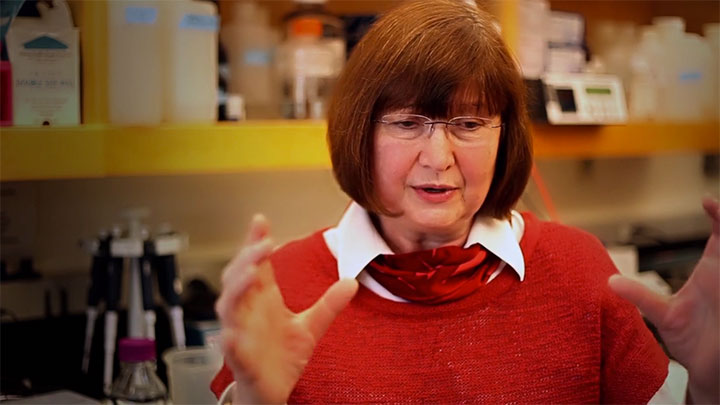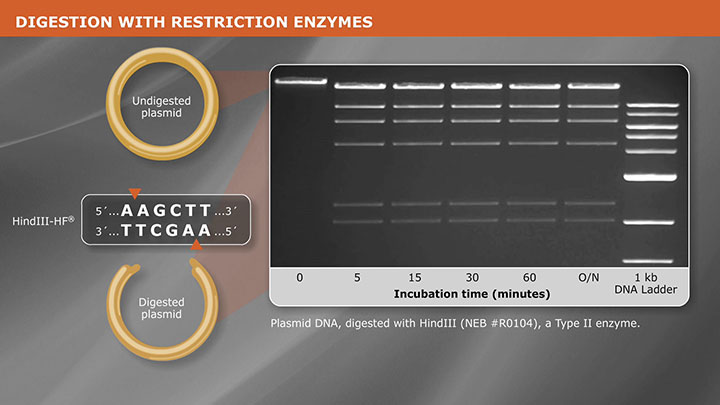Behind the Product: The NEB® PCR Cloning Kit
Script
Becky Kucera :
I've been asked to talk about how the PCR cloning kit was developed, and looking back on it this really had a couple of phases. The first phase was way back in graduate school. One of the things that helped me choose my major in graduate school was going to a lecture about bacteriophages. The very first time I saw a picture of T4 DNA phage landing on a cell and just taking over that entire cell's history, it was just so amazing to me that something that was so incredibly small could wreak such havoc so quickly, so successfully. I've always been fascinated with little things that have huge effects on their environment.
Fast forward to about 10, 11 years ago, I read this article in PNAS that talked about mini-genes, which I have never heard of. But it turns out that mini-genes are little genes that have less than five amino acids that they code for, and yet ribosomes can't handle them well. Mini-genes create terrible problems in cells when they're trying to be expressed. One way to think about it is that the ribosome has evolved to handle certain genes, but something that small is kind of out of its specs, it doesn't quite know what to do. Again, the idea that something so small, a simple two to five amino acid mini-gene could just kill a cell was something that seemed so strange and incredible to me.
Back at the beginning of this PCR cloning kit, I kind of pulled that from the back of my mind and said, "Is this something that we can use? Because it's such a clever phenomenon. Is there something that we can do in the biotech community to use this phenomenon to make scientist's life easier at the bench?" That led to the PCR cloning kit.
Related Videos
-

How Does the NEB® PCR Cloning Kit Work? -

Overview of PCR Cloning -

Cloning With Restriction Enzymes

